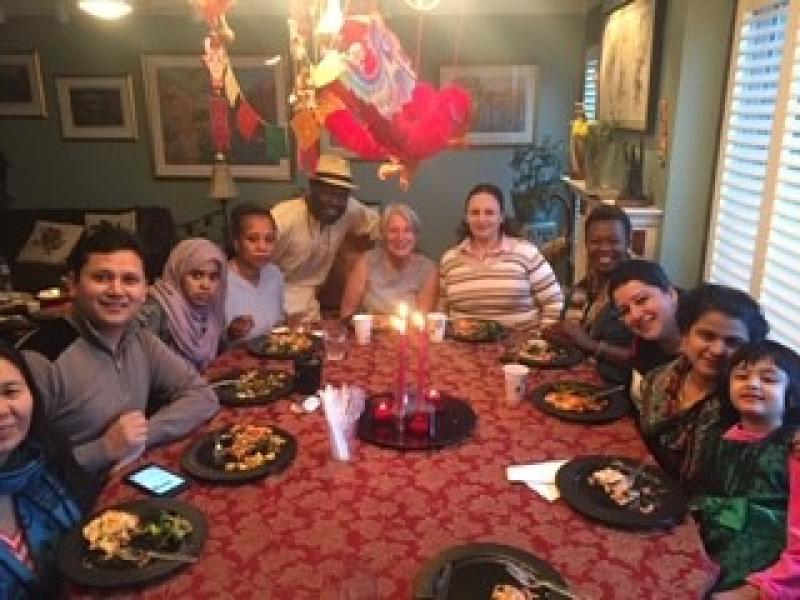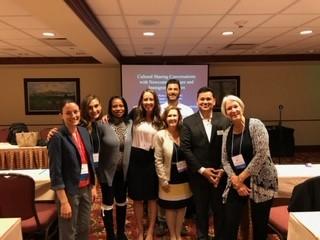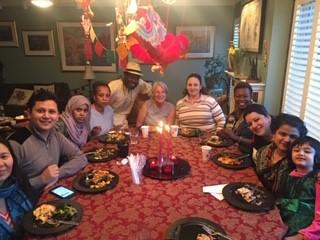Investing in Discovery: Partnering with Community Navigators on Cultural Sharing Conversations
By: Gloria Miller, Professor, Morgridge College of Education

The goal of the current project was to evaluate one type of preservice social bridging experience between aspiring educators and newcomer families whose children attend school in the greater Metro Denver. In this project, social bridging was operationalized as a cultural sharing conversation (i.e., CSC) designed to promote reciprocal story sharing and a free expression of opinions and exchange of personal insights, socio-historical realities, and ‘funds of knowledge’ (Gonzalez, Moll, & Amanti, 2005; Sanchez, 1999). Thirty school psychology graduate students enrolled in a first-year practicum seminar were paired to complete a CSC with one newcomer family receiving cultural navigation services at our community partner agency – the Colorado African Organization (CAO). Licensed school-psychologists must enter the field with knowledge of family systems, strengths, needs, and culture, strategies to support family influences on children’s learning and mental health, and the ability to collaborate with other educators to ensure families are meaningfully engaged in their children’s schooling.
The results provide preliminary evidence that preservice social bridging assignments like the CSC may help ensure educators enter the field with skills and efficacy to create positive, welcoming, and culturally responsive school environments. Overall, these findings support expansions of social bridging between newcomer families and preservice educators. From a social justice perspective, this work contributes to the growing research that makes it clear U.S. educators need to do more to ensure newcomer families feel welcomed and knowledgeable about how to engage in their child’s education. The survey developed and piloted here might be useful as a self-reflective progress monitoring tool to ensure preservice educators and mental health professionals graduating from DU enter their respective fields ready to engage in collaborative partnerships and to advocate for equitable local, national, and global education programs, policies and systems for newcomer students and their families.
This work also reaffirms the benefits of community-based research to best serve newcomer populations since it fosters collaboration between schools, colleges and non-profit agencies. Indeed, the expertise of the CAO community navigators was instrumental to this work. CNs already have been invited by faculty in other MCE graduate programs to lecture to teachers and higher education professionals. The inclusion of CNs as essential partners in preservice training endeavors can ultimately promote more effective and sustainable home, school, and community partnerships that contribute directly and indirectly to improved educational, health and mental health outcomes in migrant families and students in the US and elsewhere in the world.
Practice recommendations also can be drawn from these results to create occasions for culturally and linguistically diverse families to authentically interact with persons within and outside of their own cultural group. Classes to encourage English language competence combined with opportunities for social networking and professional development focused on global education could be offered jointly and separately to newcomer families and educators. School staff could be encouraged to attend community and religious celebrations and festivals since such events represent cherished cultural values, food, and traditions. Inter-ethnic public art projects also might be employed as effective social bridging opportunities that promote a sense of belong between newcomers and their host communities.
Editor’s Note: This project was funded with a CCESL Public Good Grant.

